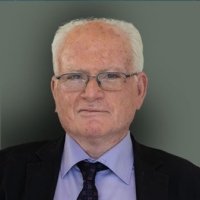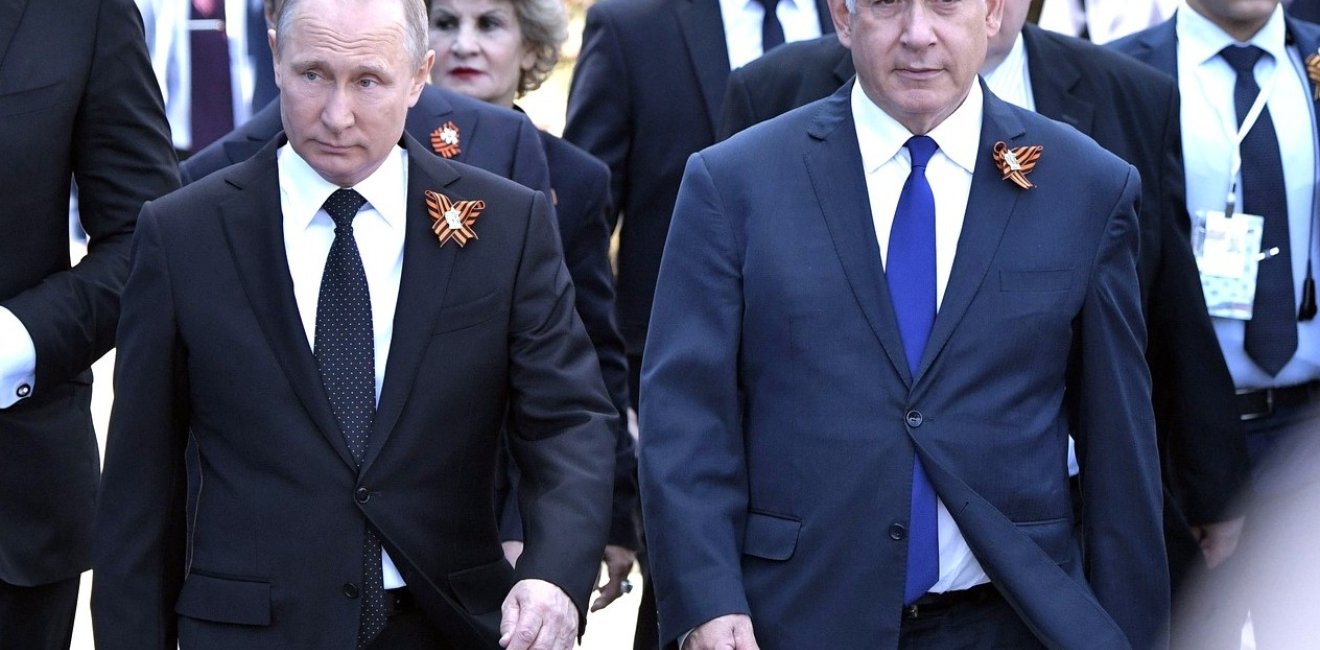
A blog of the Kennan Institute
BY MATTHEW ROJANSKY, DIRECTOR, KENNAN INSTITUTE, WOODROW WILSON INTERNATIONAL CENTER FOR SCHOLARS, AND MAJ. GEN. (RES.) AMOS GILEAD, EXECUTIVE DIRECTOR OF THE INSTITUTE FOR POLICY AND STRATEGY (IPS), IDC, HERZLIYA
On Monday, the American, Russian, and Israeli National Security Advisors are expected to gather in Jerusalem for an unprecedented meeting on regional security issues. This trilateral initiative presents a unique opportunity for the United States and Israel to work together to address the Russian challenge in the Middle East.
Russia’s entry into the Syrian civil war in 2015 marked its return to the Middle East as an actor able to shape the regional security landscape and underscored its increasingly assertive actions on the world stage. Moscow has sought to expand its role in the region beyond Syria by engaging and developing relationships with major regional players, including Israel.
Although Russia has strengthened its ties with Israel, the United States and Israel remain steadfast allies with shared regional interests.
The United States seeks to retain its position as the dominant security actor in the Middle East even as it acknowledges limits to its military commitments in the region and aims to secure order and stability in Syria. At a minimum, this means avoiding conflict with Russia and at a maximum, the crafting of a lasting political settlement to the Syrian civil war and ending the Iranian presence in the country, which perpetuates the sectarian crisis in the country, complicates the efforts to promote its reconstruction and constitutes a strategic challenge to Israel.
Israel is the Unites States’ most vital ally in the Middle East. The two countries share a keen interest in containing Iran’s ambitions to reach the Mediterranean and acquire nuclear capabilities. The United States views Israel’s security as a top priority, as well as a core part of its regional counterterrorism strategy.
From the Israeli perspective, the U.S.-Israel alliance is a key pillar of the country’s security. The two countries share an understanding that Israel must have freedom of action to exercise its legitimate right of self-defense in a region where its most basic national security interests are constantly challenged from multiple directions.
However, there are also important differences between the ways that Jerusalem and Washington perceive Moscow.
The United States’ relationship with Russia is principally shaped by the ongoing fallout from Russian interference in U.S. elections since at least 2016, as well as Moscow’s broader global pattern of malign activity, especially in Ukraine and, more recently, Venezuela. The United States also views Russia’s intervention in the Middle East with great concern, even though Russia has so far failed to extend its writ beyond Syria, and could hardly hope to match U.S. military capabilities in the region.
Israel’s relationship with Russia is pragmatic. Israel faces what it considers to be an urgent, strategic challenge in Syria, due to Iran’s presence. Tehran is determined to establish another missile and terror front on Israel's northern border, while Moscow’s military presence constrains Israel's freedom of action in the country. Israel, therefore, finds it must engage Russia through high-level diplomatic channels.
These differences in approach need not burden U.S.-Israeli cooperation as Israel clearly recognizes that its alliance with the United States and the stabilizing effect of the U.S. presence in the region are the top priorities for Israel's national security.
On the basis of this understanding, Americans and Israelis can likewise work together to explore avenues of potential agreement with Russia during the upcoming trilateral meeting. At a minimum, both Washington and Jerusalem can build on existing bilateral channels of communication with Russia.
The United States and Israel should also consider jointly structuring incentives for Moscow to play a more productive role in a long-term Syrian conflict settlement.
The U.S. and Israel should be prepared to jointly delineate what an acceptable role for Russia in Syria may be, and to consider integrating the Astana and Geneva negotiations, on the condition that Russia be willing to put real pressure on Iran to end its presence and withdraw its proxies from the country.
The United States and Israel can also leverage the need for outside funding for Syria’s reconstruction to incentivize Russia to play a more constructive role in the process. In particular, the United States can coordinate with the Arabian Gulf countries and European allies to help bring new financial assistance and investment to the table as a concrete incentive for conflict settlement.
Finally, careful coordination among Sunni Arab states, the United States and Israel more broadly can help forge a collective response to stepped up Russian assertiveness in the region, including Moscow’s wading into the Libyan conflict, and its longstanding insistence on brokering Israeli-Palestinian talks.
Going forward, the United States and Israel should maintain regular government-to-government and expert-level channels focused on the Russian challenge in Syria and the greater Middle East. Fast moving political and security developments in the region that intersect with critical global challenges make this type of coordination between allies essential. The upcoming trilateral meeting will be a chance to set the right top-level tone and to jump start bureaucracies on both sides.
Authors

President and CEO, US Russia Foundation


Kennan Institute
After more than 50 years as a vital part of the Wilson Center legacy, the Kennan Institute has become an independent think tank. You can find the current website for the Kennan Institute at kennaninstitute.org. Please look for future announcements about partnership activities between the Wilson Center and the Kennan Institute at Wilson Center Press Room. The Wilson Center is proud of its historic connection to the Kennan Institute and looks forward to supporting its activities as an independent center of knowledge. The Kennan Institute is committed to improving American understanding of Russia, Ukraine, Central Asia, the South Caucasus, and the surrounding region through research and exchange. Read more

Explore More in The Russia File
Browse The Russia File
Chechnya as a Model of Modern Russia

Russia’s Indigenous Communities and the War in Ukraine

Gas and Power in a Changing US–Russia Relationship

